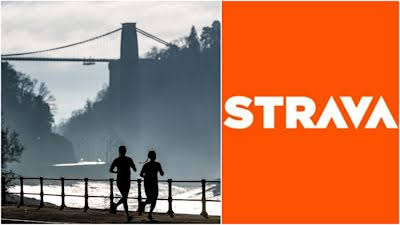EXPOSED: Lazy Strava Users Hiring ‘Running Mules’ to Gain Kudos and Clout — London Athletes Paid 40p a Mile to Fake Marathon Routes
London, UK – May 13, 2025
In a bizarre twist to the digital fitness revolution, it has been revealed that a growing number of Strava users are hiring so-called “running mules” to complete runs on their behalf — all in the pursuit of fake fitness records, social media clout, and the coveted kudos on the popular tracking app.
According to multiple reports from within the running community, a shadow market has emerged, particularly in London, where seasoned runners are charging an average of £0.40 per mile to complete entire marathon routes or high-performance segments for clients too lazy — or too image-conscious — to do it themselves.
How the Scam Works
Clients hand over their login credentials or sync their GPS watches or phones with the runners-for-hire, who then complete runs as if they were the original user. The data uploads seamlessly to Strava, appearing entirely legitimate. The user then garners kudos — Strava’s version of likes — from their network, boosting their social image and perceived athleticism.
Some clients go so far as to request personal bests or simulated training streaks leading up to major races, all while remaining completely sedentary.
A 27-year-old London-based runner, who wished to remain anonymous, told The Mail:
“I’ve been doing this for over a year now. Some people just want to look like marathon runners online. They pay, I run — everyone wins. Except, of course, the truth.”
Clout Over Commitment
The trend points to a disturbing rise of “performance signaling” in the fitness world, where individuals are more interested in appearing fit than actually achieving physical goals.
“Strava has become more than a training tool — it’s a social currency,” says Dr. Julia Hayes, a sports psychologist at King’s College London. “When validation comes in the form of digital admiration, some users feel compelled to fabricate success rather than earn it.”
The Business of Fraudulent Fitness
Many of these “running mules” advertise their services through private Telegram groups, Reddit threads, and even word of mouth in local running clubs. The price usually starts at £10–£15 for a 10K, with marathon-length efforts costing around £17–£20 — still far cheaper than the time, training, and recovery a real effort would require.
Some runners have reportedly taken on multiple clients, earning hundreds of pounds a month simply by running popular routes with different accounts synced to different devices.
Strava’s Response
When asked for comment, a spokesperson from Strava said:
“We take the integrity of our community very seriously. Manipulating activity data not only violates our terms of service but undermines the spirit of athletic achievement. We are investigating reports and may take action, including account suspensions or bans.”
The Fallout: What’s Real Anymore?
This revelation has sparked outrage and ridicule within the authentic running community. Elite athletes and amateur runners alike have expressed disgust at what they call a “digital doping epidemic.”
“It’s no different from using steroids or lying about your times,” said Gemma Li, a London-based marathoner. “It’s just happening through apps now instead of in labs.”
The Takeaway
In a world increasingly driven by appearances and online validation, even the once-humble act of running has fallen prey to faking. As fitness becomes more gamified and social media-driven, the question now becomes: Are you running for health — or just for likes?
Strava’s next update might need more than GPS tracking — it may need truth detection.


